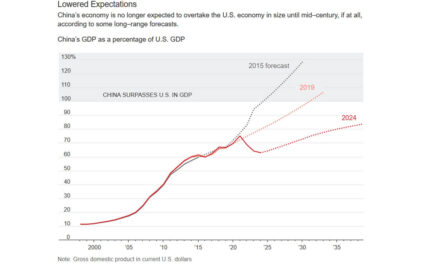
Netflix Updates Culture Memo, Refuses to Cater to ‘Woke’ Crowd

Netflix isn’t for everyone, and that’s okay.
In 2009, Netflix CEO Reed Hastings published a 125-slide presentation titled “Netflix Culture.” Available to employees and the public, the presentation explains how Netflix strives to maintain the highest levels of transparency, keep only its most effective employees, and avoid traditional corporate rules.

Included in a list of “Real Values” are qualities like judgement, curiosity, selflessness, inclusion, impact (removed in 2022), and integrity. Perhaps the most intriguing part of the document is a statement which suggests Netflix would prefer that its employees place a higher value on the work done by their colleagues than on work they did themselves.
As explained in the updated and retitled “Netflix Culture – Seeking Excellence” memo published in May 2022, the company has decided not to “censor specific artists or voices” for content that may be perceived as biased, harmful, and/or discriminatory.
The update, which trims the memo from 4,340 words to 4,070 words, comes in response to an employee walk-out that occurred when Netflix refused to censor comedian Dave Chapelle’s stand-up special “The Closer.” Protestors described the show as transphobic and homophobic.
“As employees we support the principle that Netflix offers a diversity of stories, even if we find some titles counter to our own personal values,” reads the culture memo’s “Artistic Expression” section. “Depending on your role, you may need to work on titles you perceive to be harmful. If you’d find it hard to support our content breadth, Netflix may not be the best place for you.”
In other words, employees who are unwilling to work on certain content can find a job elsewhere.
“We support the artistic expression of the creators we choose to work with,” the document continues. “We let viewers decide what’s appropriate for them, versus having Netflix censor specific artists or voices.”
The streaming service’s refreshing stance on content presents a contrast to that of Facebook, which does its best to control what its viewers read (click here to read more).
“Entertaining the world is an amazing opportunity and also a challenge because viewers have very different tastes and points of view…So we offer a wide variety of TV shows and movies, some of which can be provocative.” The memo encourages sensitive viewers to pay attention to content warnings and to take advantage of Netflix’s “easy to use parental controls.”
Unfortunately for Netflix, however, its commitment to transparency and the fact that its culture memo has been available to the public since 2009 have made it an easy target for the media.
After interviewing more than 60 current and former Netflix employees, Wall Street Journal contributors Joe Flint and Shalini Ramachandran wrote a scathing article describing the company’s workplace environment as “ruthless, demoralizing, and transparent to the point of dysfunctional.” The journalists took particular issue with “sunshining” – a Netflix policy that asks employees to share their mistakes with others – and the “keeper test,” which asks managers to consider during performance reviews whether they would fight to keep an employee on staff.
Another new addition to the culture memo is advice that Netflix employees act with fiscal responsibility. Appearing in the “Valued Behaviors” section, the updated memo replaces the phrase, “There are virtually no spending controls and few contract signing controls,” with the words, “You spend our members’ money wisely.”
As noted by Forbes contributor Bretton Putter, Netflix’s voluntary attrition and involuntary departure rates are close to the national average. The company is wildly successful and part of that success is a result of Reed’s commitment to transparency.
“If you want to build an innovative, disruptive, high-performance, rapid growth company that attracts and retains the best talent, then you need to be deliberate about the culture you create,” writes Putter. “Those strong cultures are demanding and hence they are not for everyone.”
Individuals who feel alienated by or uncomfortable with this type of culture need not apply.
Sources:
Netflix sends ‘Culture Memo’ to woke employees, saying they can work elsewhere
Netflix’s Company Culture Is Not For Everybody And That’s Exactly How It Should Be


























Joe Gilbertson: where are you going with these threats? My free speech is facing intimidation, sometimes physical threats. Is this…
NOT BUSTED. You didn't have to say it. That is what I meant in the above post from me. But…
Just another ruse for taking jabs at Biden through alleged short comings of his. Ten days remaining in Biden's term…
I never said I WANT China to continue to own Panama. You made that up. First,I didn’t say it. Second.…
I absolutely do Not in any way, shape or manner fabricate ANYTHING you say. I do and will always tell…